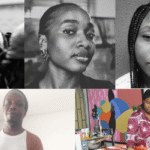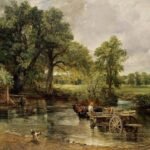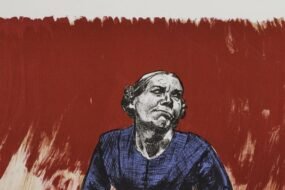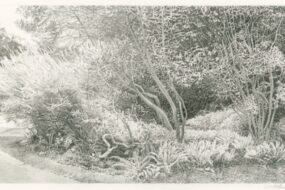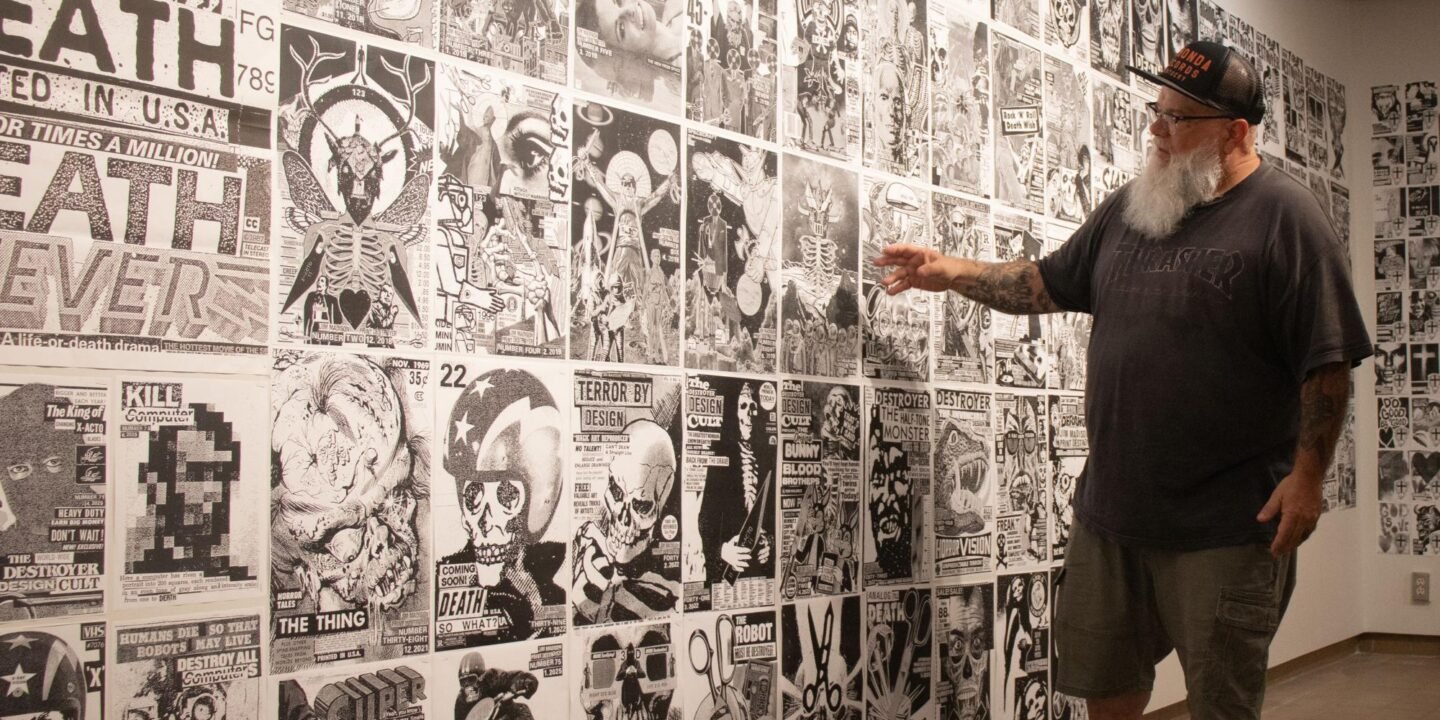

Jim Madison abandoned his pursuit of a college degree and knuckled down into his hobby of screen printing T-shirts over 35 years ago.
Since then, he’s refused to compromise his traditional cut-and-paste methods and abide by the digital design shift. His reward was making posters for monumental rock bands like Melvins, Tool, Iron Maiden and recently, Nine Inch Nails.
Many of those posters are included in Madison’s gallery in the Ivan Wilson Center for Fine Arts titled “Sullivan,” on display until Sept. 25. The gallery showcases a plethora of Madison’s work, including concert posters, Rat Fink prints and Record Store Day flyers for Mellow Matt’s Music and More.

“There’s way better designers that do way better stuff than what I do,” Madison said. “But why I do it and how I do it is what’s unique about it.”
When Madison had only a year left of graphic design courses at WKU in the early 1990s, he decided he’d had enough.
“The fine art world I just got fed up with because I felt like it was kind of pretentious,” Madison said.
He started cutting his path with an X-Acto knife and co-founded Print Mafia in 1997 with his friend, Connie Collingsworth. Madison dove full-fledged into his interests in rock music and skateboarding and pasted them all over posters.
But long before Print Mafia cemented itself in the industry of gig posters, Madison spent his free time hanging posters for his friend David Kells. Kells worked for a Nashville venue called 328 and would score Madison tickets to shows at the venue in exchange for distributing posters.
Madison and Collingsworth eventually “put two and two together” with some inspiration from “Man’s Ruin: The Posters & Art of Frank Kozik,” released in 1995. The book mapped out a process for making posters for music venues.
“There would’ve been no Print Mafia if it wasn’t for Frank Kozik,” Madison said.
With guidance from Kozik, Print Mafia started making posters for touring bands playing at 328, and gave them to Kells to sell at the shows.
Kells climbed the ladder through different Nashville venues and landed at Bridgestone Arena. Print Mafia followed right along, and Madison still fosters that connection. Tuesday, he took a trip to Nashville and dropped off 50 Nine Inch Nails posters at Bridgestone.
In 2005, “Art of Modern Rock: The Poster Explosion” highlighted a surge of concert poster production and shined a spotlight on the artists who made them. It placed gig posters under the microscope, and the audience couldn’t get enough.
“When this book came out, it was over with,” Madison said.
The book, which was bought up by music venues, presented nearly 30 Print Mafia posters. From that point on, Print Mafia established its name in the game.

(Kane Smith)
After the popularization of rock posters, Print Mafia stayed true to its craft.
When Print Mafia was just getting its feet off the ground in the late 1990s, before widespread digital design, it relied on physically cutting and pasting using silkscreen. In an interview with WKU PBS in 2013, Madison said Print Mafia still used those same physical methods. Twelve years later, nothing has changed.
Madison said the physical cut-and-paste method doesn’t come without its own set of challenges. Precision is essential to the craft. Without it, designs easily become distorted or warped.
“You have to consider putting everything together and taking it apart,” Madison said.
Madison constantly searches for material to use in his prints like vintage magazines and books at thrift stores, private collectors and Half-Priced Books. He said older magazine scraps can be difficult to copy, but they provide a raw texture to the prints he makes, which his consumers love.

(Kane Smith)
While Madison still refuses to use the computer to design, he’s used the internet to diversify his approach of pushing out posters and prints in recent years. He’s utilized his Instagram of over 40,000 followers to promote his work and direct customers to his Etsy and Clued shops. He also does a monthly package of prints for over 150 Patreon subscribers.
“If I want to keep doing it, I have to evolve,” Madison said.
He said a trip to Houston for a vendor’s market showed him the impact of using his platform on social media.
In 2019, Madison was offered $900 to host a workshop in Houston, days before the printmaker market, It Came from the Bayou. Madison said all the spots were snapped up, but then Covid-19 hit, and the show was cancelled. Around that time, Madison became a licensed Rat Fink artist, producing prints for the company.
When the market returned a couple of years later in 2022, Madison packed up his van on a Thursday and hit the road for Houston. He did the workshop on a Friday, laid low Saturday and set up at the market Sunday.
“I got to meet a lot of people, I just loved it,” Madison said. “Man, I was hooked.”
On the following Wednesday, Madison hosted a pop-up shop selling Rat Fink prints at Austin Speed Shop, which he’d called up about a week prior. Madison also posted on Instagram days before to let people know he’d be set up.
Madison “killed” at the pop-up, attributing his success to his ability to reach people through Instagram and being able to talk about what he does and how much he loves doing it.

(Kane Smith)
Despite Madison’s internet and commercial success, he’s not swimming in cash. He kept his job at BlueCotton until about 2020, and it wasn’t until his wife picked up some bills that he could leave the company.
“If I wanted to make money, I’d do something else,” Madison said.
Madison’s favorite avenue of business tends to be vendor markets and pop-ups, considering the lack of selling and shipping fees. He’ll have a booth Saturday, Aug. 30, at the Bowling Green Punk Rock Flea Market.
Madison loves his work and his community, but he still has one regret: not sticking it out for just one more year at WKU.
“I should’ve finished,” Madison said. “My biggest regret is not finishing.”
Though his lack of a degree hasn’t quite held him back in his career, he wishes he had one to teach graphic design and printmaking.

Madison still keeps his connections to the WKU Department of Art and Design, and taught a “cut, paste and destroy” workshop, Aug. 21, to Matt Tullis’s typography class. He’s hosting another workshop with a screen printing class Sept. 10.
“Sullivan” will be on display until Sept. 25 in the FAC gallery followed by a closing reception the same day at 5 p.m.





